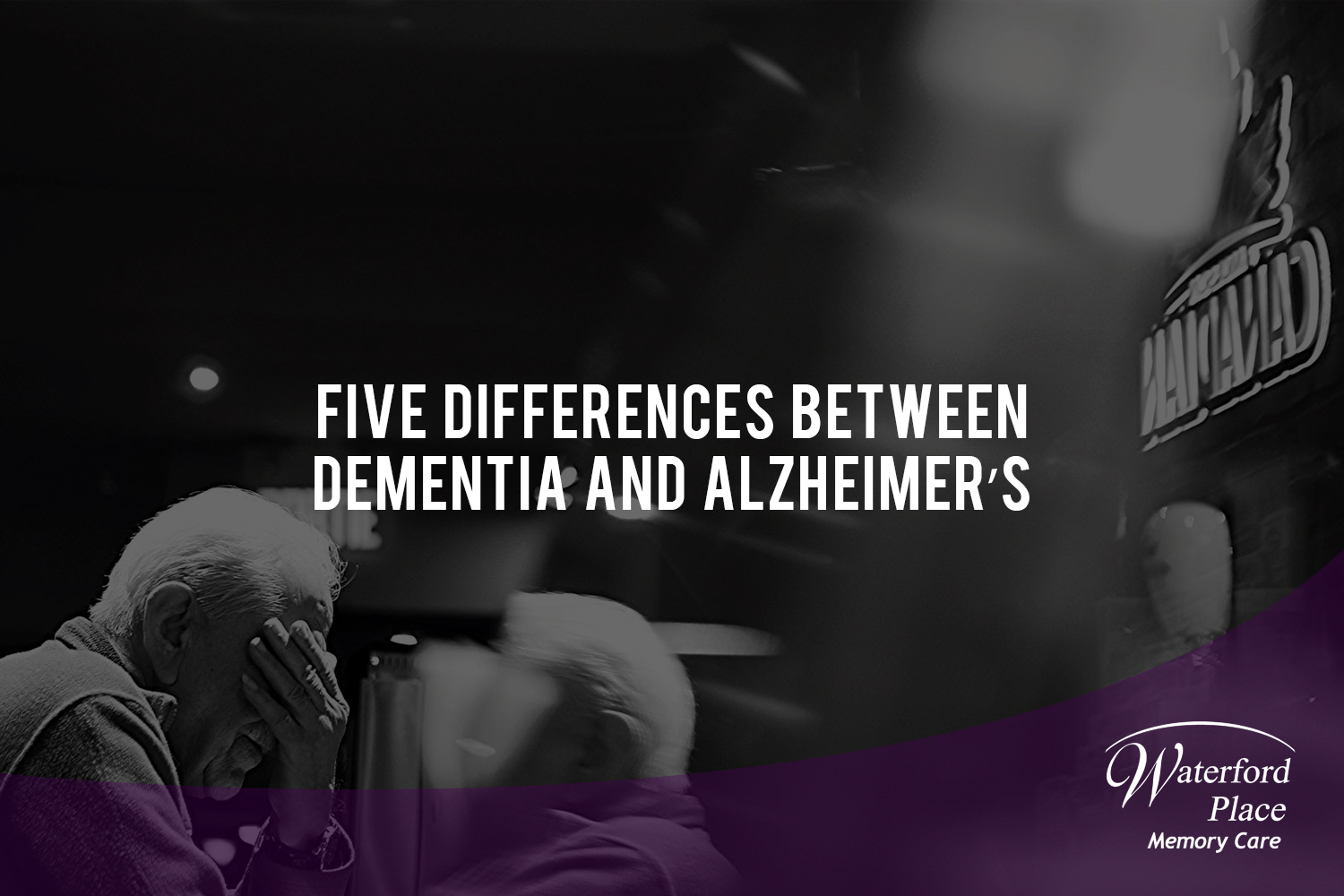
Often used interchangeably, dementia and Alzheimer’s are two different diagnoses and require different treatment. Dementia is an umbrella term that describes a group of symptoms associated with a decline in memory or other thinking skills severe enough to reduce a person’s ability to perform everyday activities. Alzheimer’s is a specific disease and is one of many forms of dementia. Alzheimer’s is the most common form of dementia. To better understand dementia and Alzheimer’s, it is important to understand the differences:
-
- Alzheimer’s is a disease and dementia is a syndrome. Alzheimer’s is a specific disease and is a form of dementia. Whereas dementia is a term used to describe symptoms like memory loss, a diminished performance of activities, and difficulty in communication.
- An individual can have more than one type of dementia. Mixed dementia, which includes abnormalities with more than one cause co-occurring in the brain, often involves Alzheimer’s and vascular dementia. Impaired blood flow to the brain, which can be caused by a stroke, is a common cause of vascular dementia.Dementia presents itself differently in different people, even if they have the same type of dementia. For example, two different people with Alzheimer’s can have entirely different concerns and forms of memory loss, even though they are classified as having the same type of dementia.
- Other diseases can trigger dementia. While Alzheimer’s is a disease unto itself, common causes of dementia are Huntington Disease, Parkinson’s disease, and Creutzfeldt-Jakob Disease. Because of the impact on nerve cells, these diseases have a higher tendency to cause dementia. As these three diseases progress, they degenerate nerve cells – causing chemical changes in the brain, which often leads to dementia.
- Dementia is unique. As symptoms progress, it can be hard to distinguish one form from another. It is also important to note that each person reacts very differently to dementia and enjoys different activities. It is very important not to let the disease or diagnosis classify the person but realize that they are truly a unique and special individual created in the image of God.
- The onset age of dementia and Alzheimer’s can be different. According to Mayo Clinic, 95 percent of Alzheimer’s patients are 65 years old or older. Whereas Huntington, Parkinson’s, & Creutzfeldt-Jakob, develop earlier and can lead to dementia in middle age.
If you or someone you love is beginning to show symptoms of memory loss or dementia, it is always best to talk with your primary care physician, as there are many things you can do to slow the disease process.
At Waterford Place Memory Care, we’re flipping the script about what it means to live with dementia. Our unique, specialized programs are shown to reduce and even reverse the effects of memory loss in older adults. Hope for dementia is here. Learn more about Waterford Place Memory Care: https://www.wpmemorycare.org/